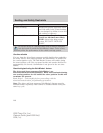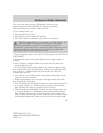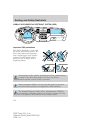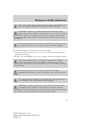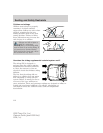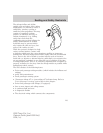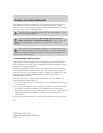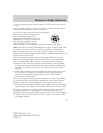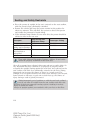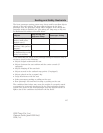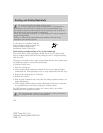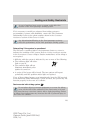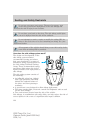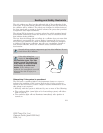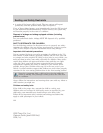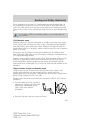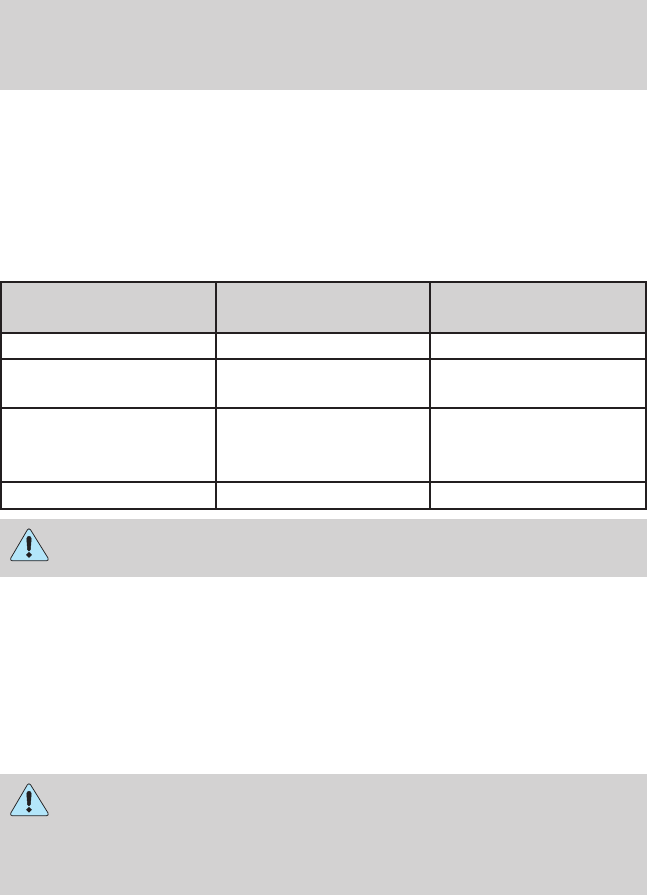
• Have the person sit upright in the seat, centered on the seat cushion,
with the person’s legs comfortably extended.
• Restart the vehicle and have the person remain in this position for
about two minutes. This will allow the system to detect that person
and enable the passenger’s frontal airbag.
• If the indicator lamp remains lit even after this, the person should be
advised to ride in the rear seat.
Occupant
Pass Airbag Off
Indicator Lamp
Passenger Airbag
Empty seat Unlit Disabled
Small child in child
safety seat or booster
Lit Disabled
Small child with safety
belt buckled or
unbuckled
Lit Disabled
Adult Unlit Enabled
Even with Advanced Restraints Systems, children 12 and under
should be properly restrained in the back seat.
After all occupants have adjusted their seats and put on safety belts, it’s
very important that they continue to sit properly. A properly seated
occupant sits upright, leaning against the seat back, and centered on the
seat cushion, with their feet comfortably extended on the floor. Sitting
improperly can increase the chance of injury in a crash event. For
example, if an occupant slouches, lies down, turns sideways, sits forward,
leans forward or sideways, or puts one or both feet up, the chance of
injury during a crash is greatly increased.
Sitting improperly out of position or with the seat back reclined
too far can take off weight from the seat cushion and affect the
decision of the front passenger sensing system, resulting in serious
injury or death in a crash.
Always sit upright against your seatback, with your feet on the floor.
2008 Town Car (tow)
Owners Guide (post-2002-fmt)
USA (fus)
Seating and Safety Restraints
116



